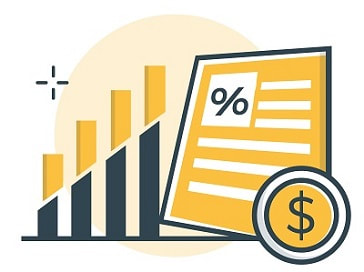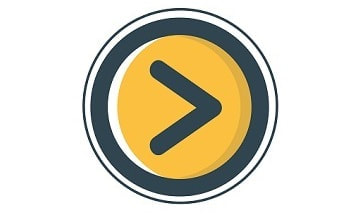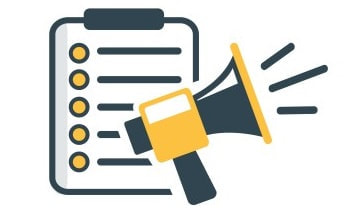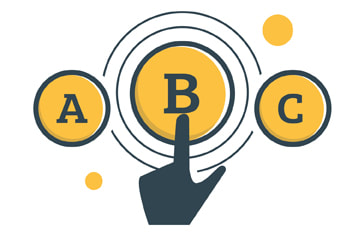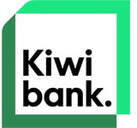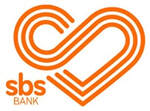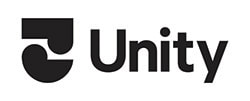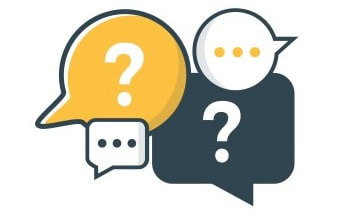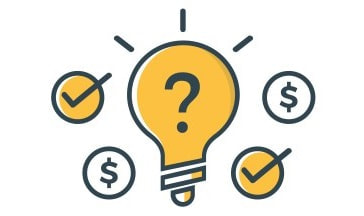First Home Loans - 5% Deposit Mortgages Underwritten by Kāinga Ora - The Definitive Guide
A First Home Loan makes it easier for you to buy your first home - our guide explains how you can get a home loan from trusted lenders with a 5% deposit.
Updated 25 January 2024
Summary
This guide covers:
- The First Home Loan is designed for first home buyers who can afford to make regular repayments on a home loan, but have trouble saving for a large deposit. Rather than the traditional 15% or 20% deposit requirement, anyone meets the criteria of the First Home Loan can buy a qualifying property with a 5% deposit.
- First Home Loans are issued by selected banks, building societies, and credit unions, and underwritten by Kāinga Ora – Homes and Communities (the government's department of housing).
- Note: The KiwiSaver First Home Savings Withdrawal is an entirely different thing, but you may be eligible for this too. This guide is those wanting to apply for a 5% First Home Loan.
- This guide walks you through what you need to know about the First Home Scheme - the requirements, limitations, costs and tips to boost your chances of buying your first home.
- Please note that house caps were removed in May 2022 so now homes of any value are eligible to be considered for a First Home Loan.
This guide covers:
First Home Loan - what you’re entitled to and how you can get it
First Home Loan Eligibility Explained
There are a number of requirements for First Home Loan; we outline them below:
If you meet the above criteria, you can apply for a First Home Loan with a participating lender. You'll need to meet affordability checks and have a minimum 5% of the purchase price of the house you are wishing to buy for the deposit.
- You are aged 18 years or over
- You currently do not own a home or land and are a first-home buyer
- You have a maximum yearly income of up to:
- $95,000 or less for an individual buyer without dependants; or
- $150,000 or less for an individual buyer with one or more dependants; or
- $150,000 or less (combined) for two or more buyers, regardless of the number of dependants
If you meet the above criteria, you can apply for a First Home Loan with a participating lender. You'll need to meet affordability checks and have a minimum 5% of the purchase price of the house you are wishing to buy for the deposit.
You are buying one of the following types of property and land arrangements:
- Fee simple (i.e. a freehold property)
- Stratum estate (freehold and leasehold)
- Cross-lease (freehold and leasehold)
- Leasehold
- Maori land
First Home Loan: Earning Limits Explained
- Every New Zealander is different, and the earning limits will arguably be fair to some and not others. Even a $2 salary difference can make a huge difference when it comes to putting together your home deposit.
- For example, if you're a couple earning a total of $150,001 you're not able to qualify for a 5% First Home Loan deposit; the same couple earning $149,999 could be eligible. This is what the law is - there is no way around it. You may feel this is unfair if you're earning above the threshold but other New Zealanders could argue you're earning far more than a lot of other people.
- Wherever you sit in the earning spectrum, if you're eligible for the First Home Loan and believe it will help you in the absence of having enough money saved for a deposit, applying with a participating lender is a good idea.
Do you exceed the $95,000 or $150,000 earning limit?
- If you've had a pay rise in the last 12 months to over the earning limit, you may still qualify as the lender (who assesses your First Home Loan application) looks at the total salary you were actually paid - for example, if your salary jumped from $90,000 to $100,000 in March and you apply in April, the total salary for the last 12 months would be somewhere less than $95,000.
- If your company offers a share-based incentive plan, i.e. sacrificing salary for shares in the company you work for, this also lowers your total salary as it is assessed on a cash basis.
- DO NOT approach your employer asking for a temporary pay reduction to meet the earning limits - this is fraud and no employer with any sense would oblige. You also risk your job by asking - so don't.
Must-Know Facts about the First Home Loan
Plan Ahead and get 'pre-approved' even if you have not decided on a property - knowing how much you can spend on a home makes house hunting easier
|
Building a new home? Make sure the lender will qualify it for a First Home LoanBuilding a new home is greater risk to a lender given the risks involved. Before you invest any time, money and effort into building plans, it's essential to contact a First Home Loan lender and discuss your intentions. The lender will assess your plans, income and make a call upfront. If you're declined, you can apply with another First Home Loan lender and/or consult with a mortgage broker.
|
The government monitors if you rent your entire home out instead of living in it (but renting a spare room is fine)The government makes it clear - you must live in the home you are buying. A First Home Loan cannot be used to buy an investment or rental property.
The Government and lenders make sure you're abiding by what you signed up to, as reported in this Radio NZ story. Renting a spare room (or as many as you have) is fine, as long as you continue to permanently live in the property. |
You will need to pay a one-off Lender’s Mortgage Insurance (LMI) fee which is 0.50% of the loan accountBecause you're borrowing up to 95%, there is added risk to the lender should the price of property fall and/or you are unable to repay your First Home Loan. To counteract this, the government stipulates that every First Home Loan borrower will need to pay a Lender’s Mortgage Insurance (LMI) premium. This is 0.50% of the loan account. For example, if you borrow $500,000, you'll pay a one-off $5,000 fee. This can be added to the loan amount so you'll be able to pay it off over the life of your mortgage.
The lender may also apply a loan application fee - we suggest asking the lender upfront about their First Home Loan fees so you know what upfront costs you'll incur. |
First Home Loan Lenders
Several lenders participate in the First Home Loan scheme, and we have listed these below as outlined on the Kainga Ora website.
Important: You will need to meet the lending criteria of a participating bank or lender before a First Home Loan can be made. This can include your financial ability to repay the loan, your current level of debt, and your credit history.
Important: You will need to meet the lending criteria of a participating bank or lender before a First Home Loan can be made. This can include your financial ability to repay the loan, your current level of debt, and your credit history.
Banks:
Westpac First Home Loan
|
Kiwibank First Home Loan
|
Cooperative Bank First Home Loan
|
SBS Bank First Home Loan
|
Building Societies and Other Lenders:
Westpac First Home Loan
|
NZHL First Home Loan
|
Unity First Home Loan
|
Frequent Asked Questions - First Home Loan
Do I need to be a KiwiSaver member to be eligible for a First Home Loan?
No. Anyone who meets the earning criteria (and buys a home within the price threshold) is eligible for a First Home Loan.
I am self-employed, do I qualify for a First Home Loan?
If your income is below the $95,000 individual or $150,000 group limit for the last 12 months on the date you apply, you should qualify. However, a lender will look for a track record of income to make sure you are able to repay. If you've earned more in other years, this won't invalidate your application either.
Do I apply for the KiwiSaver First Home Savings Withdrawal with my First Home Loan lender?
Withdrawing from KiwiSaver is a separate processes and needs to be applied for on different application form vis your KiwiSaver scheme. Your lender is the only organisation who can assist with the First Home Loan.
I've been living overseas and have just come back to New Zealand and want to buy a home - can I apply for a First Home Loan?
Yes - as long as you meet the qualification criteria regarding income. The lender will ask for your contract to see your annual salary to make sure you are eligible for the First Home Loan and you can afford to repay the amount you wish to borrow.
What does "new property" mean, and does it include a new apartment?
"New property" is defined by Housing New Zealand as:
- A vacant residential section on which a new dwelling will be built (i.e. bare land section)
- A house and land package purchased off the plans (i.e. purchased from a builder or developer)
- A new apartment built off the plans
- A newly built property that has received its building code compliance certificate less than six months before the date of the buyer’s First Home Loan application.
I have an existing agreement to buy a house/land package (or apartment) a few months ago. The development has not completed yet - can I apply for a First Home Loan?
Yes, in most situations, you are eligible as you are not a "homeowner" yet by definition. If the property meets the requirements of the First Home Loan scheme and your lender approves the application, you will be able to settle on the property.
Is it cheaper to get a 5% deposit mortgage, or save up for a 20% deposit?
Per month, the First Home Loan will have higher repayments than a standard 15% or 20% mortgage because there's more loan to pay back in the same amount of time. Our example below shows what you can expect to pay with either options. The overall lifetime cost of a 5% First Home Loan mortgage is higher than a standard 20% mortgage.
Table 1 - First Home Loan vs Standard Mortgage Costs
Table 1 - First Home Loan vs Standard Mortgage Costs
Property Details |
5% Deposit for First Home Loan |
20% Deposit Standard Mortgage |
Property Value |
$500,000 |
$500,000 |
Deposit Size |
$25,000 (5%) |
$100,000 (20%) |
Mortgage Amount |
$475,000 |
$400,000 |
LMI Fee (0.50% of the borrowing) |
$2,375 |
$0 |
Total Mortgage Repayable |
$477,375 |
$400,000 |
Interest Rate (fixed, 25 year term) |
7% |
7% |
Monthly Repayment |
$3,374 |
$2,827 |
Total Cost of Mortgage over 25 Years |
$1,012,196 |
$848,135 |
Data sourced from our Mortgage Calculator
First Home Loan Application Process
Make the application hassle-free by getting organised and gathering the necessary documents well in advance as you take steps to purchase a home. You have two options when applying for a First Home Loan - pre-approval or final approval.
Pre-Approval - if you're at the start of your house hunt, getting pre-approval from the bank will let you know how much your budget is. The lender assesses your income and approves you for a specific amount. Once you find a property you like within the price range, you can get final approval from the lender.
Final Approval - if you've already found a home you want, contacting your preferred lender to get final approval is the next step. The lender then assesses your financial circumstances and checks to make sure the property fits the loan requirements.
Important: Get organised in advance of arranging a First Home Loan approval
Step 1: Gather the following supporting documents:
Step 2: Apply and submit your documents:
Pre-Approval - if you're at the start of your house hunt, getting pre-approval from the bank will let you know how much your budget is. The lender assesses your income and approves you for a specific amount. Once you find a property you like within the price range, you can get final approval from the lender.
Final Approval - if you've already found a home you want, contacting your preferred lender to get final approval is the next step. The lender then assesses your financial circumstances and checks to make sure the property fits the loan requirements.
Important: Get organised in advance of arranging a First Home Loan approval
Step 1: Gather the following supporting documents:
- Proof of income - Proof of your total income earned in the last 12 months. If you are buying a house with others, you'll also need their confirmation of the income they earned in the last 12 months as well.
- Identification - A photocopy of your passport, birth certificate or driver’s licence in the name you are applying with
- Copies of pay slips for the last two months
- A signed copy of an agreement for sale and purchase, a fixed price building contract or a contract with a builder/developer for a yet to be built property (if you've already found a potential property)
- Evidence that you have a deposit of at least 5% of the purchase price (unless applying for pre-approval)
- A proposed settlement date/grant payment date at least four weeks away if applicable (unless applying for pre-approval)
Step 2: Apply and submit your documents:
- Contact the lender and follow their application procedure, submitting the documents in Step 1 above. They will then assess your financial situation, the property and other factors and let you know whether you've been approved.
Tips for Talking to Banks and Mortgage Brokers with confidence
1. Banks
2. Working with Mortgage Brokers to arrange your First Home Loan
Our view is that mortgage brokers are a first home buyer's best friend and a good mortgage broker can even teach you how the whole house-buying process works. Of course, make sure you do your research - our guide to mortgage brokers is a great place to start.
- First Home Loans are offered by a number of lenders - this list has the current participants.
- With any lender, you'll still need to meet their standard lending criteria and affordability checks.
- Participating lenders may have slightly different lending criteria but they will include your financial ability to repay the loan, your level of debt, your credit history and the way you’ve conducted your bank accounts in the past.
2. Working with Mortgage Brokers to arrange your First Home Loan
- Mortgage Brokers are professionals who can offer a lot of guidance when buying a house, as well as get you bank-beating mortgage rates.
- Mortgage Brokers can be found all over the country. They offer advice for free and help you navigate the process of being a home owner.
- Best of all, you don't pay them. Mortgage brokers make their money from commissions they earn when you sign up for a mortgage - but you're under no obligation to choose one of their deals if you can get a better deal by yourself.
Our view is that mortgage brokers are a first home buyer's best friend and a good mortgage broker can even teach you how the whole house-buying process works. Of course, make sure you do your research - our guide to mortgage brokers is a great place to start.
Mortgage Essentials:
Other Mortgage Options:
Alternative Mortgage Options:
Mortgage Management:
- Best Home Loans Offers
- Mortgage Calculator
- How Much Can I Borrow?
- Mortgage Repayment Calculator
- Mortgage Options
- Mortgage Cashback
Other Mortgage Options:
- Interest-Only Mortgages
- Interest-Only Mortgage Calculator
- Revolving Credit Mortgages
- Offset Mortgages
- Offset Mortgage Calculator
- Fixed vs Floating Mortgage Rate Calculator
Alternative Mortgage Options:
Mortgage Management:

